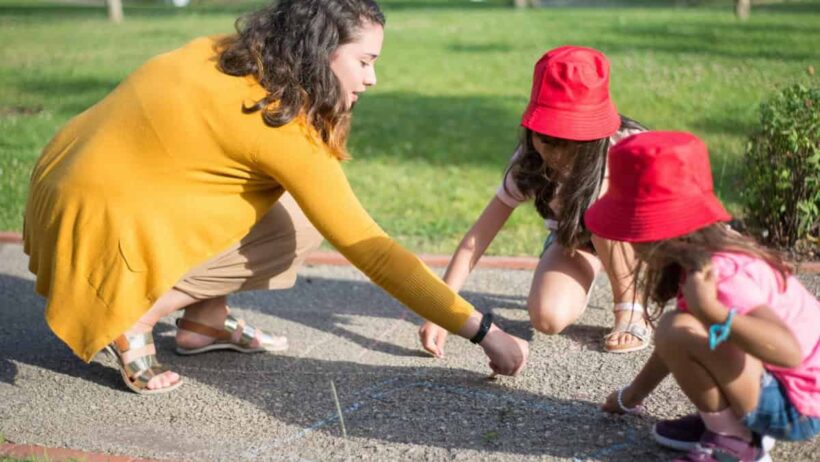Want to experience life in another country as a local? As an alternative to a traditional working holiday or university exchange, another option is to become an au pair.
What an au pair does
Au pairs typically live with a host family, which provides free accommodation, meals and a stipend. This may mean you have more stability than when trying to find backpacker jobs. In return, as an au pair, you’re expected to run errands, as well as spending time with and looking after the host family’s children.
If you like children and connect well with the host family, this can be a great experience and a fulfilling cultural exchange. By becoming an au pair abroad, you’ll also have the perfect opportunity learn another language. In fact, some au pair visas require you to take a language course while you’re there.
Of course, you’ll get time off to travel and do your own thing as well.
Being an au pair isn’t for everyone, though. If you don’t have any experience looking after young children and don’t like changing nappies, you might be in for a bit of a rude shock. And, while you usually will if you put in the required effort, there’s no guarantee you’ll necessarily get along with your host family.
There are agencies that can help to pair you with a compatible host family. That said, you don’t necessarily have to pay a middleman. You can find your own family that’s looking for an Australian au pair by creating a free profile on a website such as AuPairWorld instead.
Where can Australians be au pairs?
In theory, you can become an au pair almost anywhere where you have the right to legally work. If you’re an Australian citizen, this does mean that you’ll need a visa, residence card or work permit to be an au pair outside of Australia or New Zealand.
Popular countries for Australians to work as au pairs include:
- United Kingdom
- Canada
- USA
- Germany
- France
- Netherlands
- Switzerland
- Spain
- Italy
- Belgium
- Denmark
- Sweden
Please note that this list is not exhaustive!
What visa do you need to be an au pair?
This depends on which country you’re travelling to.
In many cases, Australians can become an au pair in another country with a regular working holiday visa. Indeed, since Australia itself has no offical au pair visa, many backpackers from other countries work in Australia as au pairs using their Australian working holiday visas.
The UK is one of the most popular destinations for Australian au pairs. Australians can simply apply for a visa that allows them to work in the UK such as a Youth Mobility Scheme visa or, for those eligible, an Ancestry Visa.

It’s a similar story for Canada. You could work as an au pair through the International Experience Canada program.
However, the USA and many European countries do offer specific types of visas for au pairs. These may give you different rights and come with different rules compared to working holiday visas. For example, the au pair visa might let you stay in the country longer, but not permit you to do any other type of work. So, it’s probably a good idea to check the rules for both types and choose carefully.
Some countries also state that you cannot work as an au pair if you have a different type of work visa. Others, including Greece and the Netherlands, explicitly don’t allow working holiday visa holders to work as au pairs.
Here are some links to official government websites with information about the au pair visas offered by some of the most popular countries for Australians:
What do you need to get an au pair visa?
To get an au pair visa, you’ll probably need to show a formal au-pair contract with a host family. This might sound like a bit of a hassle, but having a formal agreement that’s been approved by the local government could also help you down the track to set clear boundaries between you and your host family, and could help you to avoid being exploited.
Other than this, the exact requirements to get an au pair visa vary by country. Common prerequisites include:
- You are aged between 18 and approximately 27 years old (the exact age limit varies and is generally between 25-30)
- You are not married
- You do not have any children
- You speak at least a bit of the language of the country where you’re going and/or the language of the host family
Matt is the founder of Working Holidays for Aussies. Passionate about travel and always looking for great deals, he believes that a gap year is the perfect opportunity to immerse yourself in another culture and learn all the things they didn’t teach you in school!
Originally from Australia, Matt has travelled to over 100 countries, lived in 7 countries, and has extensive real-world experience with working holiday visas.












